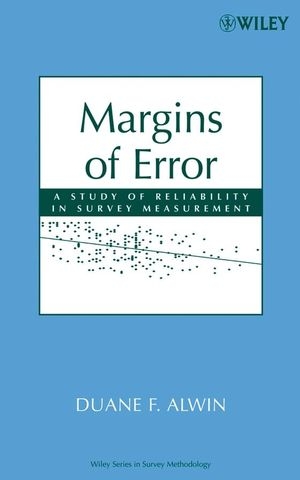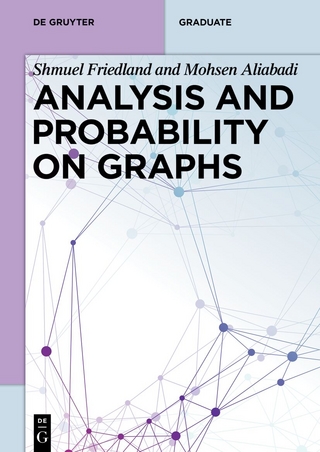
Margins of Error
Wiley-Interscience (Verlag)
978-0-470-08148-8 (ISBN)
Logically organized and clearly written, this book:
Deconstructs the data gathering process into six main elements of the response process: question adequacy, comprehension, accessibility, retrieval, motivation, and communication
Provides an exhaustive review of valuable reliability estimation techniques that can be applied to survey data
Identifies the types of questions and interviewer practices that are essential to the collection of reliable data
Addresses hypotheses regarding which survey questions, sources of information, and questionnaire formats produce the most reliable data
In conjunction with research data gathered on nearly 500 survey measures and the application of an empirical approach grounded in classical measurement theory, this book discusses the sources of measurement error and provides the tools necessary for improving survey data collection methods.
Margins of Error enables statisticians and researchers in the fields of public opinion and survey research to design studies that can detect, estimate, and reduce measurement errors that may have previously gone undetected. This book also serves as a supplemental textbook for both undergraduate and graduate survey methodology courses.
Duane F. Alwin, PHD, is McCourtney Professor of Sociology and Demography and Director of the Center on Population Health and Aging at Pennsylvania State University. In addition to a concentration on survey methodology, his research interests include a wide range of phenomena concerned with the connection of human development and social change, as well as the impact of demographic and historical processes on individual cognitive, ideological, and attitudinal development. Dr. Alwin has published extensively in social science literature and is the recipient of more than two dozen prestigious awards, grants, and special university honors.
Preface. Acknowledgements.
Foreward.
1. Measurement Errors in Surveys.
2. Sources of Survey Measurement Error.
3. Reliability Theory for Survey Measures.
4. Reliability Methods for Multiple Measures.
5. Longitudinal Methods for Reliability Estimation.
6. Using Longitudinal Data to Estimate Reliability Parameters.
7. The Source and Content of Survey Questions.
8. Survey Question Context.
9. Formal Properties of Survey Questions.
10. Attributes of Respondents.
11. Reliability Estimation for Categorical Latent Variables.
12. Final Thoughts and Future Directions.
Appendix.
References.
Index.
| Erscheint lt. Verlag | 20.7.2007 |
|---|---|
| Reihe/Serie | Wiley Series in Survey Methodology |
| Zusatzinfo | Drawings: 19 B&W, 0 Color; Tables: 0 B&W, 0 Color; Graphs: 17 B&W, 0 Color |
| Sprache | englisch |
| Maße | 165 x 239 mm |
| Gewicht | 703 g |
| Themenwelt | Mathematik / Informatik ► Mathematik ► Wahrscheinlichkeit / Kombinatorik |
| Sozialwissenschaften ► Soziologie ► Empirische Sozialforschung | |
| ISBN-10 | 0-470-08148-1 / 0470081481 |
| ISBN-13 | 978-0-470-08148-8 / 9780470081488 |
| Zustand | Neuware |
| Informationen gemäß Produktsicherheitsverordnung (GPSR) | |
| Haben Sie eine Frage zum Produkt? |
aus dem Bereich


